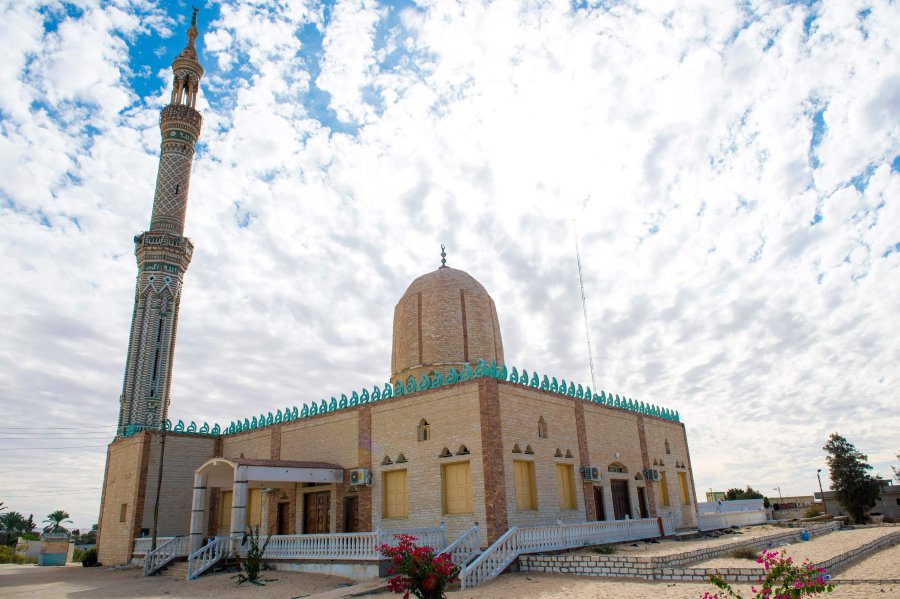Over 300 Dead in Egyptian Terror Attack

Last Friday, Egypt was struck by the worst terror attack in the country’s history. Over 300 people, including 27 children, were gunned down while at Friday prayer in the village of Rawda in the Saini Peninsula. Witnesses described the assault as beginning with a suicide bomb, which caused the mosque goers to flee into the sights of waiting militants.
While no group has claimed the attack, many suspect that the violence was carried out by members of the Saini Province, a local affiliate of the Islamic State.
Friday’s attack was unique in that it targeted Muslim civilians in a mosque. Past attacks by Sinai militants have focused on military targets in Coptic Christian populations in Alexandria and Cairo. They were also responsible for the downing of a Russian passenger plane in 2015, which led to the death of over 200 people on board.
The mosque in Rawda was likely targeted because it adheres to Sufism, which is a mystical branch of Islam considered heresy by many hardline Islamists such as the Islamic State. The recent violence paints a troubling picture, as much of the Sinai’s population identifies as Sufi and officials fear that future attacks against the community are likely.
Last Friday’s mosque attack, in which nearly a quarter of Rawda’s male population was killed, is just the latest tragedy in the six year long Sinai insurgency. The fighting has pitted local Bedouin populations against the Egyptian state.
These Arab tribal groups have a sense of deep-seated grievance against the Cairo government as the Sinai is one of the poorest regions of Egypt and has long experienced neglect. Locals are unable to serve in the military or police and the area has few schools or public institutions. The region also borders Israel and the Gaza strip, which has prevented the growth of tourism and given it a long history of conflict and arms trafficking.
In response to the attack, Egyptian authorities have promised to take the fight to the militants and have launched several airstrikes against their desert hideouts. However, further military action is unlikely to resolve the crisis. State violence continues to drive Sinai locals into the arms of extremist groups while the underlying socioeconomic issues remain unaddressed.
In the end, it is innocent civilians, like those in Rawda, who pay the heaviest price as their livelihoods are destroyed and their communities are torn apart.
The Sinai Insurgency is representative of the larger failings of the Egyptian state, which has been in political turmoil since the 2011 Arab spring. Economic failure has been a long-term issue, reducing the most populous Arab country from its former dominant position and forcing thousands of lower class Egyptians to migrate across the region.
The current military regime of Abdel Fattah el-Sisi is largely reliant on Saudi funding in order to prop itself up after removing the popularly elected Islamist leader, Mohammed Morsi, and has largely failed to make the structural reforms necessary to reinvigorate the country.
Violence and unrest in Egypt is likely to continue until the government manages to address the fundamental economic and political issues that undermine the growth and success of the country.


